** The Fourth Kenneth Karmiole Endowed Lecture on the History of the Book Trade in California and the West **
Book trade historian Charles Nelson Johnson provides a fresh look at lesser-known Southern California antiquarian bookseller Alice Parsons Millard (1873-1938)—a role she inherited as much as chose—and her activities as she courageously maneuvered her way through the decidedly male dominated trade in 1920s-1930s Europe and the United States; her personal challenges, creative business innovations and impact on numerous high profile clients, and her surprising California legacy.
An in-person and virtual presentation by Charles Nelson Johnson, author, historical consultant, and retired research librarian.
In the Sutro Library, now housed in the J. Paul Leonard Library of San Francisco State University, are 40 bound volumes containing some 1400 pamphlets mostly from the period of the English Civil War (1640-1660). Each volume, with one or two exceptions, is inscribed with the name “Henry Bradshawe” on the title-page of the first pamphlet. Who was this “Henry Bradshawe,” and how did his invaluable collection find its way into the library of San Francisco’s great benefactor Adolph Sutro?
The name Henry Bradshawe, and the family seat in Marple, Cheshire, are familiar to the rare book trade. But the history of the Bradshawe library is complicated by the fact that it was mostly created over a century and a half, from 1600 to the 1750, by five successive members of the family all forenamed “Henry.” Another contributor was John Bradshawe, presiding judge at the 1649 trial of Charles I. Thus George Ormerod, in The History of the County Palatine and City of Chester (1819), observes that Bradshawe the regicide, being childless, prior to his death in 1659 bequeathed all his books, including books on divinity, history, and other topics, to his nephew Henry, who died in 1698. Nevertheless, the most common ownership signature is not that of John Bradshawe’s nephew, but of his great nephew, the Henry Bradshawe who died in 1736.
The Bradshawe library was sold at auction in 1784 by a later member of the family; a century after the sale, Adolph Sutro purchased the 40 volumes of pamphlets from James Crossley, a Manchester magnate who had assembled a magnificent library of his own, and was consulted as an expert on Bradshawe ownership signatures. Documentation concerning the Crossley-Sutro transaction survives in the Sutro Library archives.
In addition to the Civil War pamphlets in the Sutro Library, Professor Nelson will comment on local books from the Bradshawe Library, including books in the Robbins Collection in the Berkeley School of Law, Stanford University Library, a 1632 2nd Folio Shakespeare at the University of California, Davis, and books which he himself has collected and will place on display.
An in-person and virtual presentation by Alan H. Nelson, Professor Emeritus, Department of English, University of California, Berkeley
An in-person celebration of the release of the Book Club’s 242nd publication. The Thunderbolt and the Monk by Nancy Stock-Allen profiles the lives of Lloyd J. Reynolds and Robert J. Palladino, two calligraphy teachers at Reed College whose classes were the primary inspiration for some of the key figures in early digital typography.
Remarks by the author and others.
The Blinn House | 160 N Oakland Avenue | Pasadena, California 91101
Join Matthew Reinhart along his journey from a kid making cardboard models in his bedroom to becoming an award-winning children’s book author, illustrator, and paper engineer creating gravity-defying pop-up books. He’ll discuss the ins and outs (and every other direction) of pop-up book design and production, from concept to the book itself.
An in-person presentation by Matthew Reinhart, children’s book, author illustrator, and paper engineer.
After Artists’ Books
Monday, October 24, 2022, 6-7:15 PM (Pacific)
| In-Person Presentation
* The Windle-Loker Lecture Series on the History of the Illustrated Book
In 1973 Diane Vanderlip curated an exhibition at Moore College of Art in Philadelphia titled artists books. Within a few years, artists in North America and internationally quickly adopted this phrase inadvertently launching a new genre of contemporary art.
Artists’ books created after Vanderlip’s exhibition benefited from the Duchampian prompt: it’s an artist’s book if the artist says it is. Artists making work in book form identified as members of the Avant Garde, pop art, conceptual art, Fluxus, happenings, and the like. What differentiated the artists’ books of the 1970s and later, from those created in previous decades, was the act of intentionally making a new work as an artist’s book. Many new post-1973 artists’ books were autobiographical, highlighting how artists began using the book format to share personal stories, observances, travel experiences, and playful, conceptual observations.
After Artists’ Books will explore the impact and significance of Diane Vanderlip’s 1973 exhibition artists books, the exhibition catalogue, and how it influenced creative publications that followed, through to the present day.
An in-person presentation by Tony White, University Librarian, Dorothy H. Hoover Library, OCAD University, Toronto, Ontario
Charles Lamb’s library—a heap of sixty scruffy old books singed with smoke, soaked with gin, sprinkled with crumbs, stripped of illustrations, and bescribbled by the essayist and his literary friends—caused a sensation when it was sold in New York in 1848. The transatlantic book world watched as the relics of a man revered as the patron saint of book collectors were dispersed. Following those books through the stories of the bibliophiles who shaped intellectual life in America—booksellers, publishers, journalists, editors, bibliographers, librarians, actors, antiquarians, philanthropists, politicians, poets, clergymen—Denise Gigante brings to life a lost world of letters at a time when Americans were busy assembling the country’s major public, university, and society libraries. A human tale of loss, obsession, and spiritual survival, this book reveals the magical power books can have to bring people together and will be an absorbing read for anyone interested in what makes a book special.
An in-person presentation by Denise Gigante, author and Professor of Humanities at Stanford University
* Co-presented and co-hosted by Litquake
In 1885 Jane and Leland Stanford cofounded a university to honor their recently deceased young son. After her husband’s death in 1893, Jane Stanford, a devoted spiritualist who expected the university to inculcate her values, steered Stanford into eccentricity and public controversy for more than a decade. In 1905 she was murdered in Hawaii, a victim, according to the Honolulu coroner’s jury, of strychnine poisoning. With her vast fortune the university’s lifeline, the Stanford president and his allies quickly sought to foreclose challenges to her bequests by constructing a story of death by natural causes. The cover-up gained traction in the murky labyrinths of power, wealth, and corruption of Gilded Age San Francisco. The murderer walked.
Deftly sifting the scattered evidence and conflicting stories of suspects and witnesses, Richard White gives us the first full account of Jane Stanford’s murder and its cover-up. Against a backdrop of the city’s machine politics, rogue policing, tong wars, and heated newspaper rivalries, White’s search for the murderer draws us into Jane Stanford’s imperious household and the academic enmities of the university. Although Stanford officials claimed that no one could have wanted to murder Jane, we meet several people who had the motives and the opportunity to do so. One of these, we discover, also had the means.
An in-person presentation with Richard White, author in conversation with Julia Flynn Siler, author and journalist.
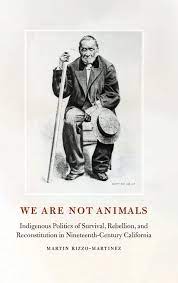
By examining historical records and drawing on oral histories and the work of anthropologists, archaeologists, ecologists, and psychologists, We Are Not Animals sets out to answer questions regarding who the Indigenous people in the Santa Cruz region were and how they survived through the nineteenth century. Between 1770 and 1900 the linguistically and culturally diverse Ohlone and Yokuts tribes adapted to and expressed themselves politically and culturally through three distinct colonial encounters with Spain, Mexico, and the United States. In We Are Not Animals Martin Rizzo-Martinez traces tribal, familial, and kinship networks through the missions’ chancery registry records to reveal stories of individuals and families and shows how ethnic and tribal differences and politics shaped strategies of survival within the diverse population that came to live at Mission Santa Cruz.
We Are Not Animals illuminates the stories of Indigenous individuals and families to reveal how Indigenous politics informed each of their choices within a context of immense loss and violent disruption.
A virtual presentation via Zoom by Martin Rizzo-Martinez, author and historian
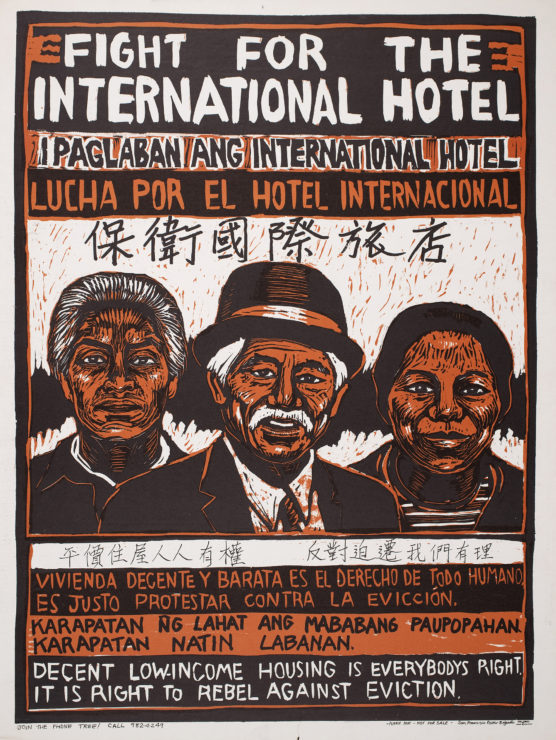
* Co-presented & co-hosted by the Northern California Chapter of the Antiquarian Booksellers’ Association of America
Every movement needs a voice, and ever since Gutenberg systematized the concept of movable type posters have been one of the media of choice for discontents, troublemakers, poets, organizers, and visionaries. Posters have served as the poor person’s pulpit for a very long time in this country. Benjamin Franklin’s network of print shops helped “stick it to the man” before this was even a country. When the rich and powerful control the major media, one could still find someone who knew how to put ink on paper to fire up a provocative and inflammatory message. These early broadsides – a single-sided newspaper sheets, usually (but not exclusively) featuring bold headlines and bold statements – were aptly named after the effect of a full row of cannon fire from a warship. Posters can make an impact.
In the US, there have been several moments when radical posters ruled. They were popular in the movement against slavery in the early 1800s, they were rediscovered in the 1930s when artists were hired by the Federal Arts Project. But after World War II they dropped off the radar for 20 years. The 1950s Cold War chill of McCarthy made such a medium too dangerous, and several paid the price. It may be hard to imagine now, but before 1964, the poster selection was bleak, mostly about travel, movies, or fine art. But four years later the range of subjects and styles had proliferated exponentially. Sex, drugs, rock and roll, and revolution could adorn your wall for only a few dollars.
Underground newspapers and comics advanced at the same time, as did radical poetry books and political tracts. This presentation explores the lively alternative West Coast publishing scene of the “long 1960s” and shows how that legacy continues to influence new generations of troublemakers.
An in-person and virtual presentation via Zoom by Lincoln Cushing, archivist and author
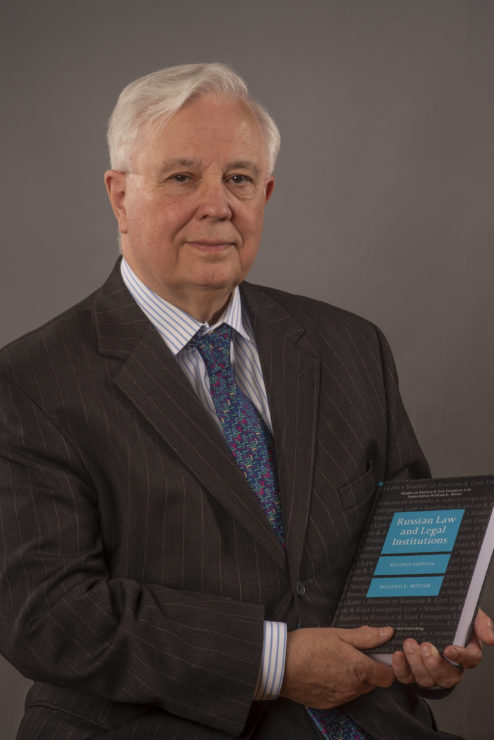
* Co-presented and co-hosted by American Society of Bookplate Collectors & Designers
A celebration of the centenary of organized bookplate collecting in the United States.
An in-person and virtual presentation via Zoom by William E. Butler, bibliophile, editor, and exlibrist
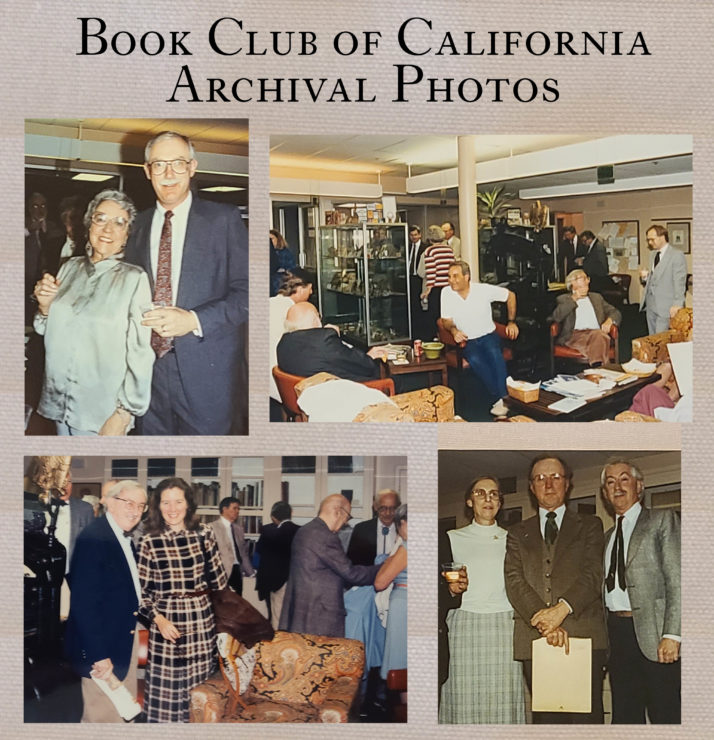
Join us in-person or online via Zoom to view seldom seen photographs from the Book Club archives and help us identify the members and guests pictured at various events.

Quarantine Public Library is a repository of one-page books made by artists, free for anyone to download, print and assemble—to keep or give away. Tracy Honn and Katie Garth launched the project in July 2020 in response to the loss of public space and institutional art access during the ongoing global health crisis. The site has connected new audiences across the world to books by more than 200 artists, writers, poets, and scholars. By provoking joyful interactions with printed artwork, QPL has worked to disrupt pervasive feelings of isolation during this pandemic.
More information is here: www.quarantinepubliclibrary.com
Tracy and Katie will discuss their collaborative project, and talk about its origins; their approach; collection curation; QPL’s reception, and some of its outcomes.
A live online presentation by Katie Garth, print-based artist, and Tracy Honn, printing history educator, curator, and letterpress printer
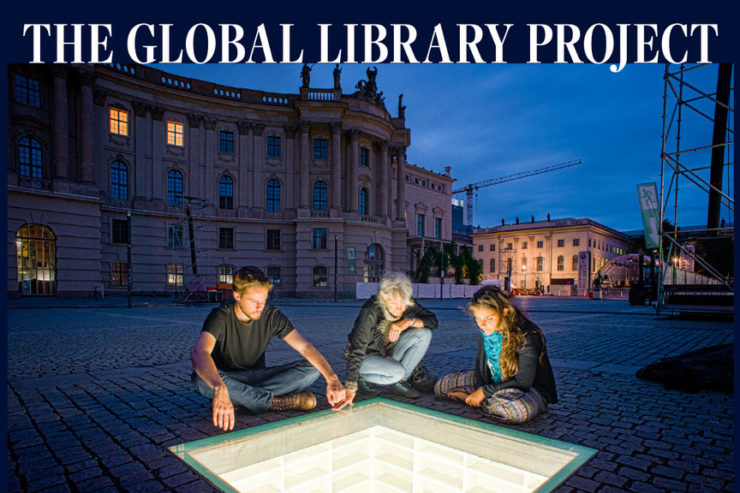
The Global Library Project
Monday, July 18, 2022, 6-7:15 PM
| In-Person event & Livestream to Zoom
After 18 years of photographing libraries throughout the United States, Dawson and Manchester took what they had learned and applied it to a global perspective. In 2016, they photographed more than 80 libraries in Northern and Eastern Europe, as well as in Ukraine and Moscow. Their journey took them from a library in the infamous refugee camp “the Jungle” in Calais, France, to Holocaust-haunted former synagogues turned into libraries in Poland, to libraries close to the hot war in eastern Ukraine, and finally, to a Russian State Library for young adults in Moscow. In 2018-2019, on a Fulbright Fellowship, Dawson and Manchester photographed libraries throughout Greece, Italy, and Israel.
The Global Library Project investigates the role of public and private libraries in communities throughout the world. It is the subject of an exhibition currently on display at the San Francisco Public Library.
An in-person and virtual presentation via Zoom by Robert Dawson, photographer, and Ellen Manchester, independent curator

* Co-presented and co-hosted by the Bibliographical Society of America
In central London, on the banks of the Thames, Lambeth Palace Library is the historic library of the Archbishops of Canterbury and the national library and archive of the Church of England. Founded in 1610, its internationally important collections include medieval illuminated manuscripts from the ninth century onwards and early printed books, as well as extensive archival holdings to the present day. In 2021, the Library re-opened to readers and the public in a purpose-built new library building. This illustrated talk will look at the history of the collections and the people associated with them, while exploring some changing ideas of what a library is for.
An in-person presentation by Giles Mandelbrote, librarian and archivist of Lambeth Palace Library
This presentation will be simultaneously streamed via Zoom.
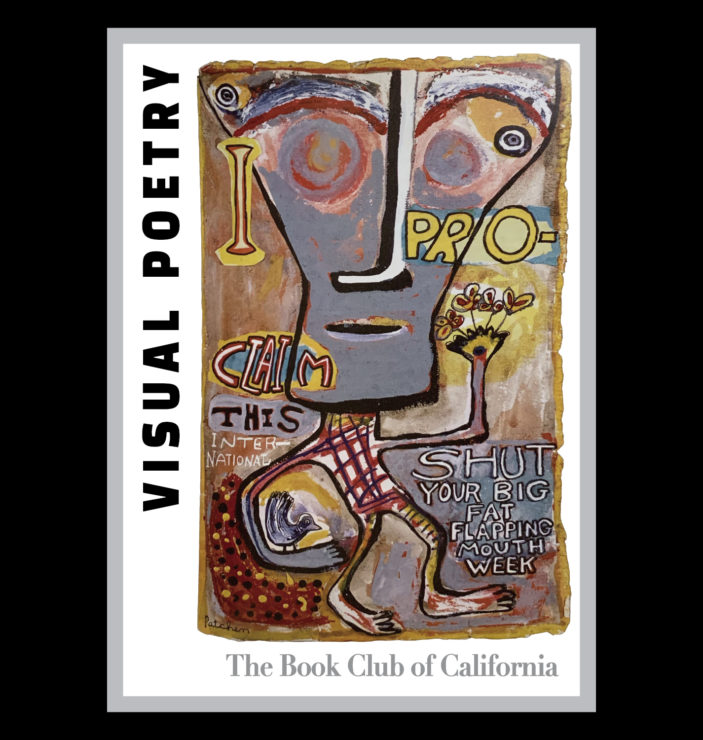
Poets, scribes, and printers throughout history have taken advantage of the fact that poetry is both a visual and a verbal art. From the collection of the Book Club of California, this exhibit looks at some of these multi-sensory works from the earliest known shaped poems, over twenty-three thousand years old, up to modern experiments in textual design.
Exhibition Opening with remarks by Elizabeth Newsom, librarian, Book Club of California
* Exhibition on view June 20 through September 2, 2022
(Space is limited. Your registration will be confirmed if space allows.)
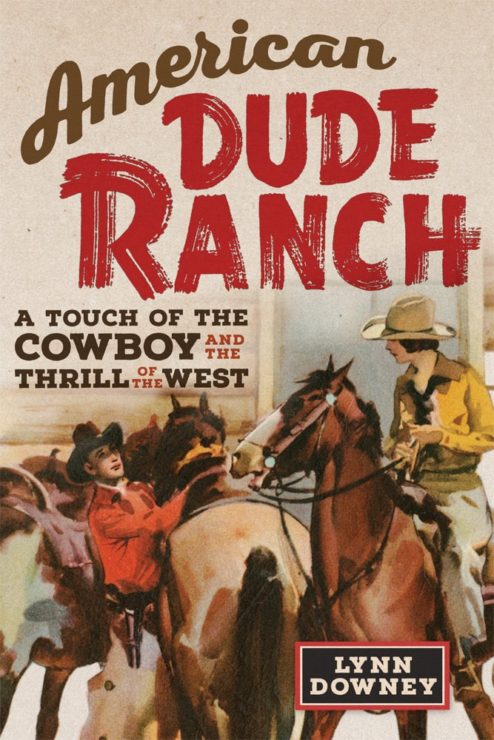
Viewers of films and television shows might imagine the dude ranch as something not quite legitimate, a place where city dwellers pretend to be cowboys in amusingly inauthentic fashion. But the tradition of the dude ranch, America’s original western vacation, is much more interesting and deeply connected with the culture and history of the American West. In American Dude Ranch, Lynn Downey opens new perspectives on this buckaroo getaway, with all its implications for deciphering the American imagination.
Dude ranching began in the 1880s when cattle ranches ruled the West. Men, and a few women, left the comforts of their eastern lives to experience the world of the cowboy. But by the end of the century, the cattleman’s West was fading, and many ranchers turned to wrangling dudes instead of livestock. What began as a way for ranching to survive became a new industry, and as the twentieth century progressed, the dude ranch wove its way into American life and culture.
Downey follows dude ranching across the years, tracing its influence on everything from clothing to cooking and showing how ranchers adapted to changing times and vacation trends. Her book also offers a rare look at women’s place in this story, as they found personal and professional satisfaction in running their own dude ranches.
However contested and complicated, western history is one of America’s national origin stories that we turn to in times of cultural upheaval. Dude ranches provide a tangible link from the real to the imagined past, and their persistence and popularity demonstrate how significant this link remains. This book tells their story—in all its familiar, eccentric, and often surprising detail.
A live presentation by Lynn Downey, author, archivist, and historian
2022 Oscar Lewis Awards
Monday, May 23, 2022, 6-7:15 PM
| In-Person event & Livestream to YouTube
The Oscar Lewis Awards were established by the Book Club of California in 1994 in honor of Oscar Lewis (1893-1992), San Francisco author, historian, and club secretary from 1921-1946. Awards for achievement in Western History and the Book Arts are awarded each year.
This year Charles Wollenberg will be recognized for his contributions to Western History and Mary Risala Laird will be recognized for her contributions to the Book Arts.
A ceremony to celebrate the honorees will be held at the Book Club. Space is limited and reservations are required. This event will also be live streamed on YouTube. Details to follow.
This event was originally scheduled for April 11, 2022 but based on honoree availability and other factors we needed to move the event to May 23, 2022.
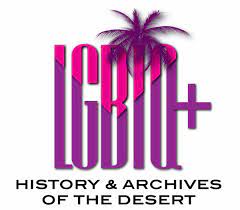
Sharing Our Desert’s LGBTQ+ History: How It All Began
Monday, May 16, 2022, 5-6:15 PM | Zoom Webinar
* Presented in association with Rare Books LA – Palm Springs
Begun in 2019, the LGBTQ+ History & Archives of the Desert is dedicated to collecting, preserving and making accessible the LGBTQ+ History of the Greater Palm Springs Area. This presentation provides a brief overview of how and why the Archives began, what their current collection houses, their exhibitions, and future plans.
A live online presentation by David Gray, co-founder and co-chair, LGBTQ+ History & Archives of the Desert
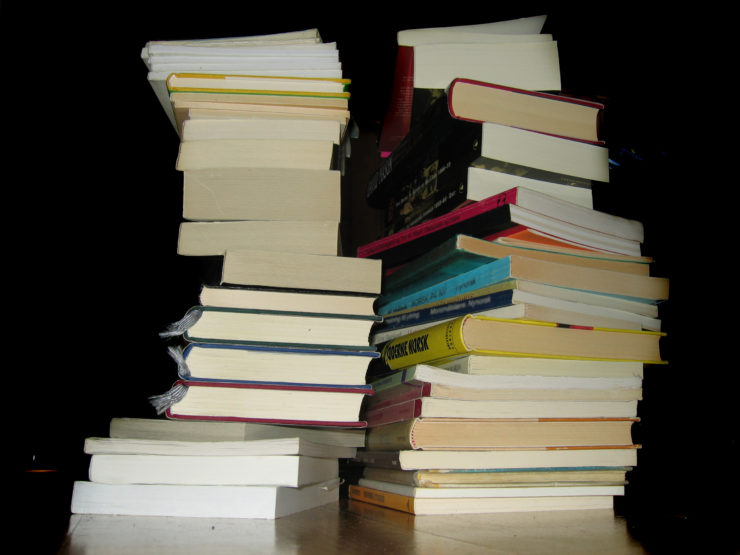
12 Things to Know: Collectors Reflect
Monday, May 9, 2022, 5-6:15 PM | Zoom Webinar
Collections advisor Spencer W. Stuart asked multi-decade dedicated collectors, “With 20/20 hindsight, what do you wish you had done, or known to do, when you started collecting?”
This talk unpacks a compilation of the responses gleaned from these individuals into 12 salient points and elaborates on their meanings through case studies.
For the emerging collector, this presentation provides foundational perspectives from which to develop sound collecting practices for the future
A live online presentation by Spencer W. Stuart, collections advisor, writer, and lecturer
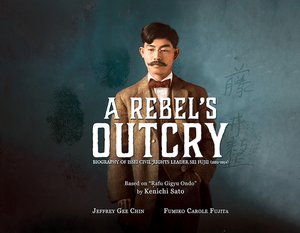
A Rebel’s Outcry: Biography of Issei Civil Rights Leader Sei Fujii (1882-1954) is an illustrated biography and detailed look into the life of Japanese American civil rights leader Sei Fujii, known for overturning the California Alien Land Law in 1952 and founding the Japanese American newspaper Kashu Mainichi (California Daily News). His complex history reveals his intriguing journey as an immigrant, a social justice activist, unionizer, and a community leader. Fujii’s story exemplifies the multitude of ways Americans have and may continue to fight for our civil rights.
The official biography on Sei Fujii is the source material written by author Kenichi Sato and was commissioned by manager Junko Maruya of the Kashu Mainichi. Following the work by Sato, Little Tokyo Historical Society conducted over ten years of extensive research, including interviews with countless community members, Fujii’s family, and visiting his ancestral samurai home in the Takamori Village of Iwakuni, Japan.
A live presentation that will be streamed by Jeffrey Gee Chin, author, filmmaker, and board member, Little Tokyo Historical Society
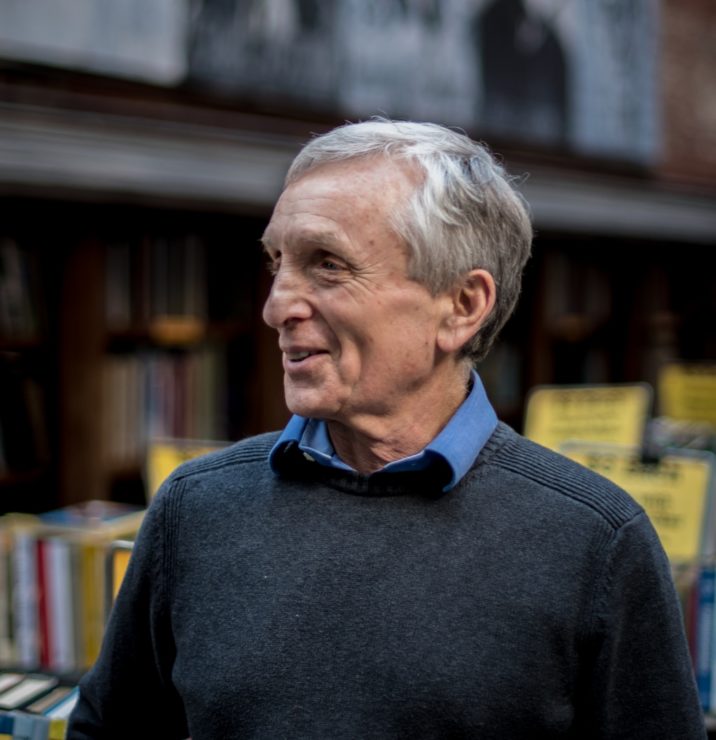
Collecting Antiquarian Books & the Joy of the Hunt
Monday, April 18, 2022, 5-6:15 PM | Zoom Webinar
Boston-based Brattle Book Shop proprietor and Antiques Roadshow appraiser Kenneth Gloss will talk about some of his “favorite finds” and describe some of the many joys of “the hunt.” He will touch on what makes a book or manuscript rare and what goes in to determining the value of an item. He will share anecdotes about his time with Antiques Road Show and private and institutional collecting, as well as offer guidelines for starting and growing a collection.
A live online presentation by Kenneth Gloss, proprietor, Brattle Book Shop and appraiser, Antiques Road Show
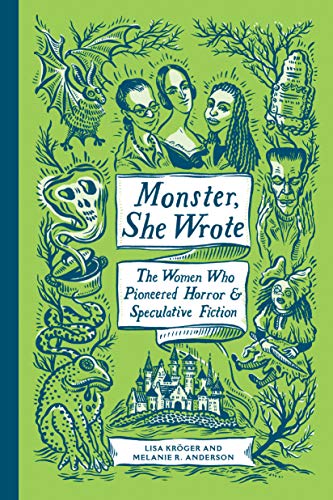
Monster, She Wrote
Monday, March 28, 2022, 5-6:15 PM | Zoom Webinar
Frankenstein was just the beginning: horror stories and other weird fiction wouldn’t exist without the women who created it.
From Gothic ghost stories to psychological horror to science fiction, women have been primary architects of speculative literature of all sorts. And their own life stories are as intriguing as their fiction.
Everyone knows about Mary Shelley, creator of Frankenstein, who was rumored to keep her late husband’s heart in her desk drawer. But have you heard of Margaret “Mad Madge” Cavendish, who wrote a science-fiction epic 150 years earlier (and liked to wear topless gowns to the theater)?
Monster, She Wrote is part biography and part reader’s guide with engaging write-ups and detailed reading lists that will introduce you to more than a hundred authors and over two hundred of their mysterious and spooky novels, novellas, and stories.
A live online presentation by Melanie R. Anderson, author, assistant professor of English at Delta State University in Cleveland, Mississippi, and podcast host, and Lisa Kroger, author and podcast host.
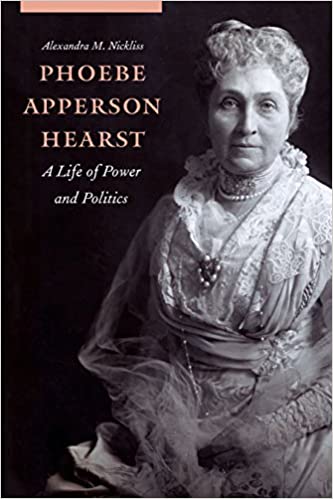
A financial manager, businesswoman, and reformer, Phoebe Apperson Hearst was one of the wealthiest and most influential women of the era and a philanthropist, almost without rival, in the San Francisco Bay Area.
Hearst was born into a humble middle-class family in rural Missouri in 1842, yet she died a powerful member of society’s urban elite in 1919. Most people know her as the mother of William Randolph Hearst, the famed newspaper mogul, and as the wife of George Hearst, a mining tycoon and U.S. senator. By age forty-eight, however, Hearst had come to control her husband’s extravagant wealth after his death. She shepherded the fortune of the family estate until her own death, demonstrating her intelligence and skill as a financial manager.
Hearst supported a number of significant urban reforms in the Bay Area, across the country, and around the world, giving much of her wealth to organizations supporting children, health reform, women’s rights and well-being, higher education, municipal policy formation, progressive voluntary associations, and urban architecture and design, among other endeavors. She worked to exert her ideas and implement plans regarding the burgeoning Progressive movement and was the first female regent of the University of California, which later became one of the world’s leading research institutions. Hearst held other prominent positions as the first president of the Century Club of San Francisco, first treasurer of the General Federation of Woman’s Clubs, first vice president of the National Congress of Mothers, president of the Columbian Kindergarten Association, and head of the Woman’s Board of the Panama-Pacific International Exposition.
Phoebe Apperson Hearst: A Life in Power and Politics offers the first biography of one of the Gilded Age’s most prominent and powerful women.
An in-person presentation that will be streamed by Alexandra Nickliss, author and professor of history at City College of San Francisco.
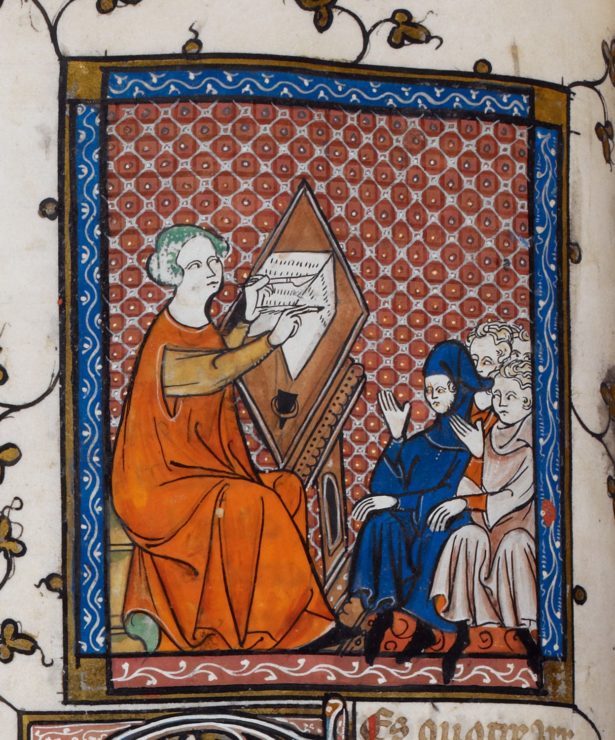
Medieval Manuscript Culture & Production
Monday, March 14, 2022, 5-6:15 PM | Zoom Webinar
Explore the physical materials, production process, ownership, and readership of medieval manuscripts from 800-1500 in Western Europe in this online presentation. Participants will learn about parchment-making, medieval ink and pigment ingredients, methods for illumination and decoration, and the culture of scriptoria with a special focus on women scribes. The lecture will also give participants the experience of examining the script and decoration of digitized European manuscripts in a virtual setting.
A live online presentation by Kathryn Brunet, lecturer, palaeographer, and special collections librarian.
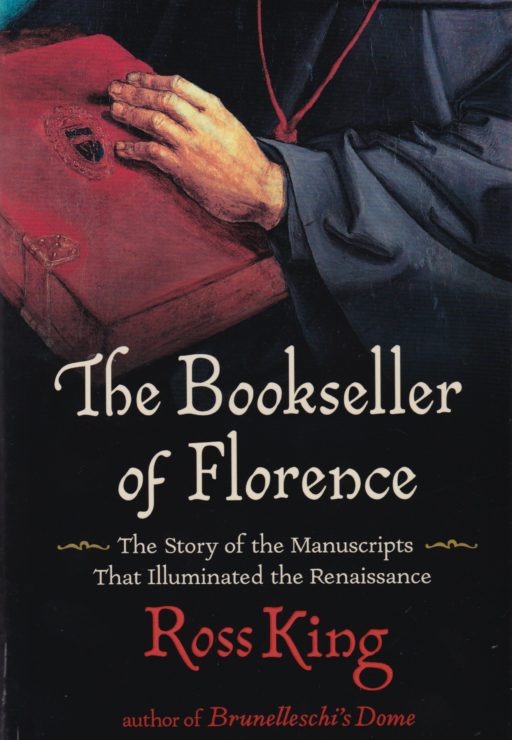
Vespasiano da Bisticci: The Bookseller of Florence
Sunday, March 13, 2022
2:00 PM | Zoom Webinar
* Co-presented and co-hosted by the Book Club of Washington
The Renaissance in Florence conjures images of beautiful frescoes and elegant buildings—the dazzling handiwork of the city’s artists and architects. But equally important were geniuses of another kind: Florence’s manuscript hunters, scribes, scholars and booksellers, who blew the dust off a thousand years of history and, through the discovery and diffusion of ancient knowledge, imagined a new and enlightened world.
At the heart of this activity was a remarkable bookseller: Vespasiano da Bisticci, known as ‘the king of the world’s booksellers’. Besides repositories of wisdom by the likes of Plato, Aristotle and Cicero, his books were works of art in their own right, copied by talented scribes and illuminated by the finest miniaturists. His clients included popes, kings and princes from all across Europe who wished to burnish their reputations by founding magnificent libraries.
Vespasiano reached the summit of his powers as Europe’s most prolific merchant of knowledge when a new invention appeared—the printing press—that forever changed how books were produced and knowledge transmitted. By 1480, after almost fifty years in business, Vespasiano closed his shop in Florence’s Street of Booksellers and retired to the country to write his gossipy memoirs of everyone he had known.
A thrilling chronicle of intellectual ferment set against the dramatic political and religious turmoil of the era, The Bookseller of Florence is also an ode to books and bookmaking that charts the world-changing shift from script to print through the life of an extraordinary man—one of the true titans of the Renaissance.
A live online presentation by Ross King, author
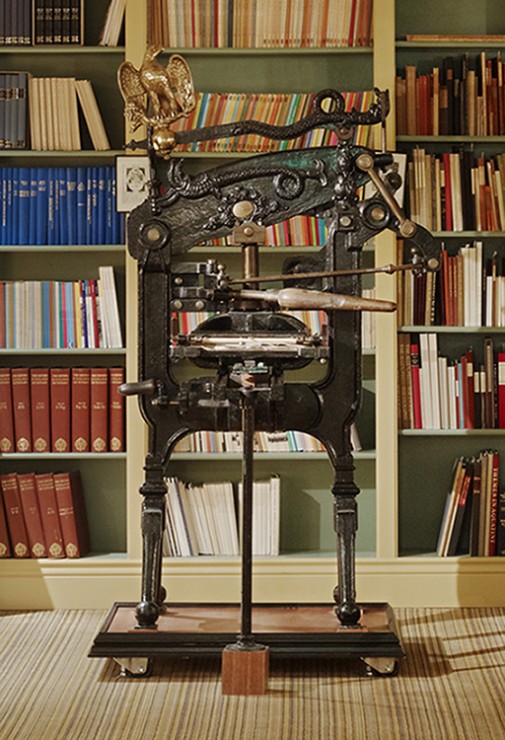
Print-Your-Own-Broadside Affair
Monday, February 28, 2022
5:00 PM – 6:30 PM | In-person event
Letterpress print your own broadside on the Book Club’s Columbian hand press with Li Jiang, Lemoncheese Press
*A limited number of broadsides will be printed.
Participation on a first come, first serve basis.
A live presentation by Peter Hiller, author, historian, and curator for the Jo Mora Trust Collection.
American Bookbinders Museum, 355 Clementina Street, San Francisco, CA 94103
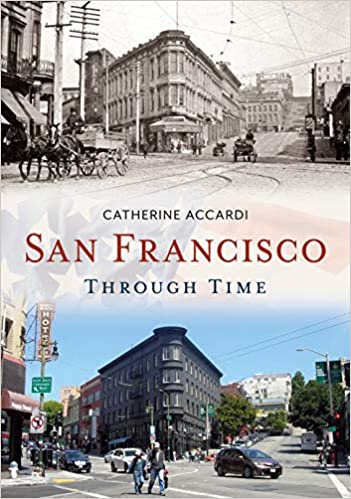
San Francisco Through Time
Monday, January 31, 2022
5:00 PM | Zoom Webinar
With over 400 officially designated local, state, and national landmarks, San Francisco is steeped in history. The city’s neighborhoods feature unique buildings and special places, some that are well known to residents and tourists but also structures and locations that have been obscured by time. Beginning at Captain Richardson’s tent near Grant Avenue and winding our way through neighborhoods throughout San Francisco, author Catherine Accardi shares the rich history of San Francisco in contrasting images, uncovering and revealing San Francisco in new ways. With over 100 photographs, her book, San Francisco Through Time, takes readers on a quest to discover the places. and the stories behind them, that make San Francisco special. Join us on a journey through time courtesy of historical photographs juxtaposed alongside present day images.
A live presentation by Catherine Accardi, author
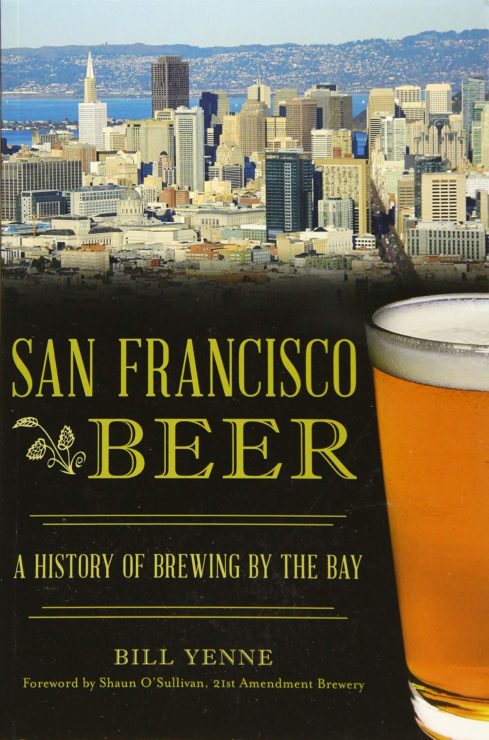
The story of beer in San Francisco is as old as the city itself. San Francisco had its first commercial brewery by 1847, two years before the gold rush, and went on to reign as the major brewing center in the American West through the nineteenth century. From the 1930s to the early 1950s, iconic San Francisco-based breweries Lucky and Acme owned the statewide California market. In the 1960s, Fritz Maytag transformed San Francisco’s tiny and primitive Anchor Brewing into America’s first craft brewery.
Now, well into its fourth generation of craft breweries, San Francisco has seen more new breweries open in the second decade of the twenty-first century than were opened in the entire previous century, proving that tech is not San Francisco’s only booming industry.
Join local author and beer enthusiast Bill Yenne as he explores San Francisco’s rich tapestry of beers and breweries that have made it a brewing capital in the West.
A live presentation by Bill Yenne, author
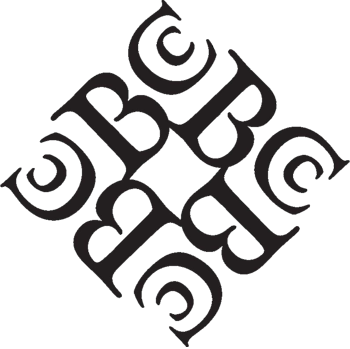




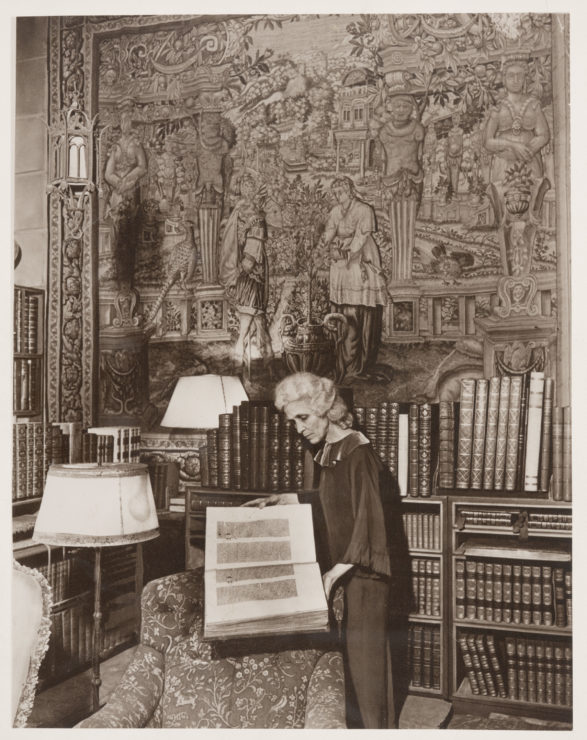
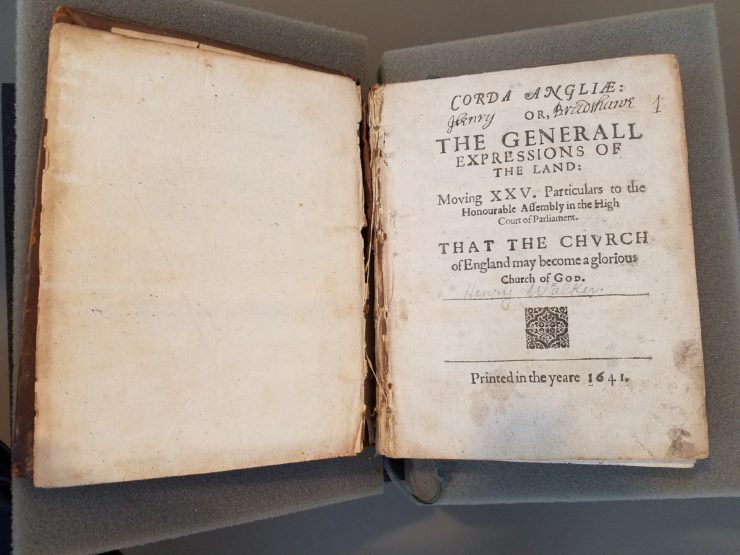
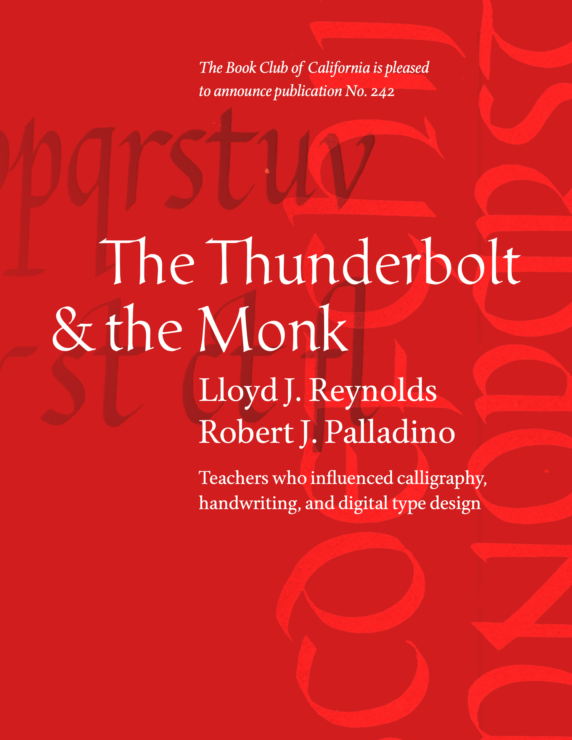
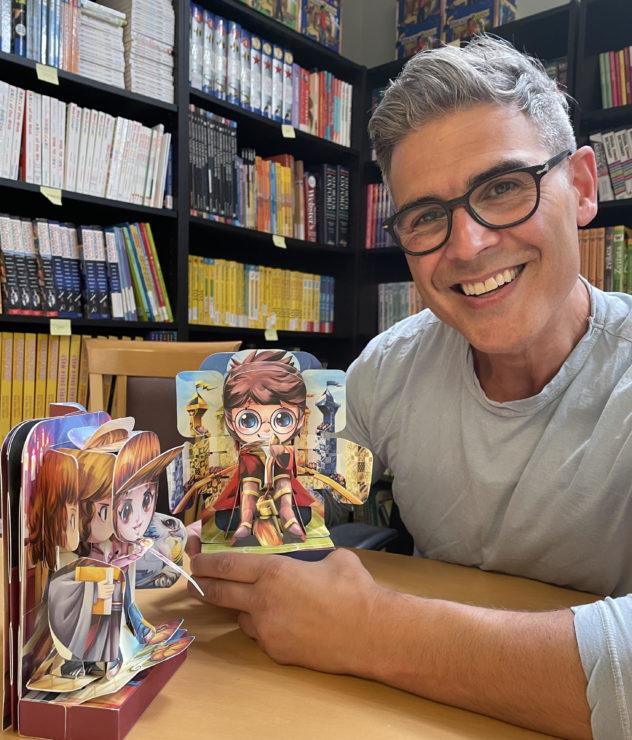


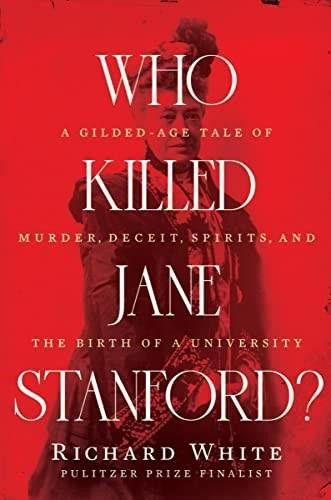
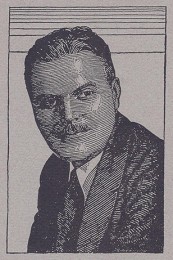
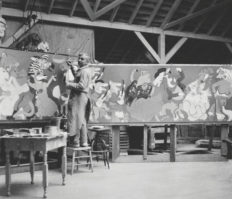


 312 Sutter Street, Suite 500 • San Francisco, California 94108 • t. 415 781 7532 •
312 Sutter Street, Suite 500 • San Francisco, California 94108 • t. 415 781 7532 • 